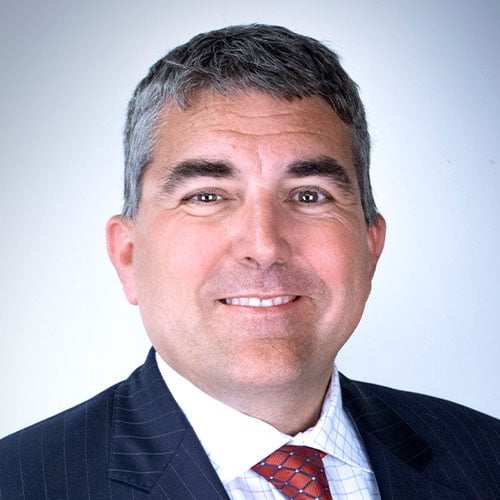
Investment Commentary
What “It’s a Wonderful Life": Teaches Us About Emotional Balance Sheets and What Really Matters
3 minute read time
If I may be so bold as to make a gift to you during this holiday season, here’s what I’d like to offer: think about your emotional balance sheet and get clear on your financial purpose. That is, find out why money has meaning to you.
A good place to start is with It's a Wonderful Life, which should be mandatory viewing for those of us in the wealth industry. Ours is an industry that is built on the ethos of “more.” More money, more growth, more income, more stuff. An industry that spends all of its time on financial balance sheets and improving the bottom line.
Think about the scene at the end. You have soldiered through the movie, through the closing scenes without needing an entire box of Kleenex. And then Harry Bailey comes walking in and makes the toast: “A toast to my big brother George, the richest man in town.” And the well-contained waterworks flow. The emotional resonance of this movie, and in particular this scene, is universal. The question is why?
At the time Harry toasts George, several of the people George has touched have entered his home and contributed funds to ensure his safety. So, what Harry says has a “play on words” aspect to it; George now has more money than he ever has had in his life. But it is not that literal meaning that so deeply touches those of us that tear up during this scene. It is what Harry really means; that George is rich because of his relationships and the impacts he’s had on others. Some of the things people say to George as they add funds to the wicker basket illustrate this point perfectly: “I would not have a roof over my head if not for you, George.” And of course, that is the whole point of the angel Clarence’s role, to show George the positive impacts he has had on the world.
This concept of what about money actually matters and the impact you have on the people and causes you care about; that is the essence of an emotional balance sheet. We all know what a financial balance sheet is- it measures your net worth, showing the value of what you own and what your things cost. In contrast, an emotional balance sheet measures values instead of value, focusing on things like happiness and impact. When I think about emotional balance sheets, I think about several family trips to Disney World our family took when my daughters were younger. If I simply looked at the world through a financial lens, it is unquestionable that trips to the “happiest and most expensive place on earth” could very easily be derided as being wasteful. But when I am asked, as I often am in my line of work, what my best investment was, I always respond the same way: these trips. You see, on my emotional balance sheet, the people I care about have this wonderful asset known as “happy memories, awesome and funny stories, and time with family.”
So how does one build a proper financial wealth plan, one that puts the requisite focus on both types of balance sheets? It starts with a clearly stated financial purpose. Putting meaning to money means that a plan needs to start by declaring that based on what makes me happy, here is how (and with or for whom) I want to spend my time and money, and this is what I am going to do about it. For example:
I am happy when I create memories with my family doing things we all love doing; therefore, I am going to spend time and money vacationing and/or going to events with my family focused on wine, water and music.
That is my purpose.
If you find your own financial purpose, you will become more George Bailey, less Mr. Potter. And who doesn’t want that? Happy Holidays.
Additional Articles From the "What Really Matters" Series


INVESTMENT COMMENTARY
What Really Matters – In Investing

Investment Commentary
Stocks Post-Election

Investment Commentary
December Investment Commentary Recap Video – “What Really Matters”
This information is for educational and illustrative purposes only and should not be used or construed as financial advice, an offer to sell, a solicitation, an offer to buy or a recommendation for any security. Opinions expressed herein are as of the date of this report and do not necessarily represent the views of Johnson Financial Group and/or its affiliates. Johnson Financial Group and/or its affiliates may issue reports or have opinions that are inconsistent with this report. Johnson Financial Group and/or its affiliates do not warrant the accuracy or completeness of information contained herein. Such information is subject to change without notice and is not intended to influence your investment decisions. Johnson Financial Group and/or its affiliates do not provide legal or tax advice to clients. You should review your particular circumstances with your independent legal and tax advisors. Whether any planned tax result is realized by you depends on the specific facts of your own situation at the time your taxes are prepared. Past performance is no guarantee of future results. All performance data, while deemed obtained from reliable sources, are not guaranteed for accuracy. Not for use as a primary basis of investment decisions. Not to be construed to meet the needs of any particular investor. Asset allocation and diversification do not assure or guarantee better performance and cannot eliminate the risk of investment losses. Certain investments, like real estate, equity investments and fixed income securities, carry a certain degree of risk and may not be suitable for all investors. An investor could lose all or a substantial amount of his or her investment. Johnson Financial Group is the parent company of Johnson Bank and Johnson Wealth Inc. NOT FDIC INSURED * NO BANK GUARANTEE * MAY LOSE VALUE
